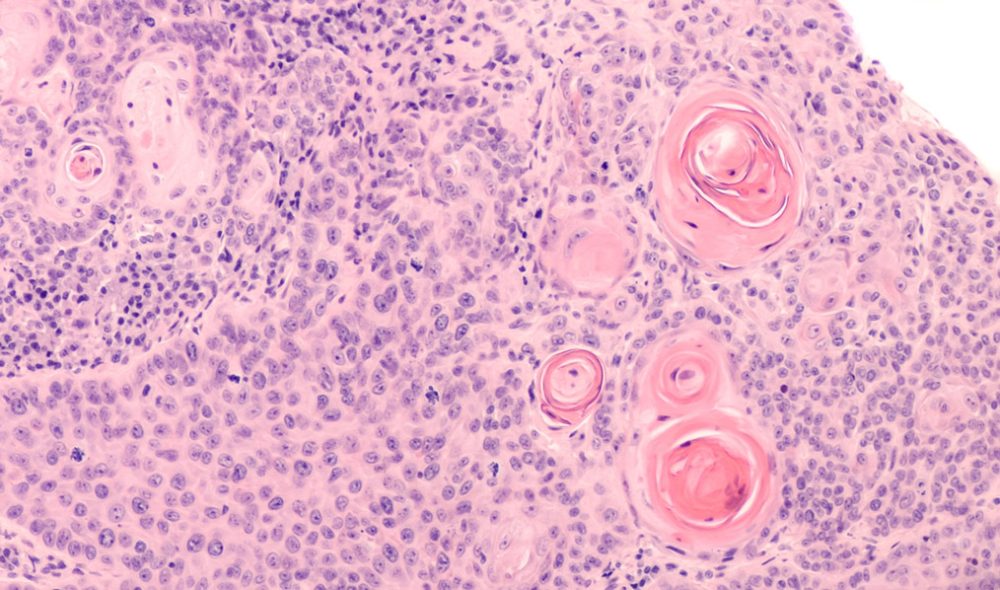Advertisment
Survival benefit from frontline immunotherapy in progression-free non–small cell lung cancer peaks at 2 years

For patients who are progression-free after two years of frontline immunotherapy for advanced non–small cell lung cancer (NSCLC), there does not appear to be a survival benefit in continuing the treatment indefinitely, researchers report.
The findings were published on June 4, 2023 in JAMA Oncology and were presented simultaneously at the American Society of Clinical Oncology/ASCO 2023 annual meeting.
As background for their retrospective analysis, the investigators noted that for advanced non–small cell lung cancer (NSCLC) patients treated with frontline immunotherapy-based treatment, the optimal duration of immune checkpoint inhibitor (ICI) treatment has been previously undetermined.
A primary purpose of the new analysis was to evaluate the association of duration of therapy with overall survival in subjects who received fixed-duration ICI therapy for 2 years compared to those who continued therapy beyond 2 years.
This retrospective study included adult subjects in a clinical database diagnosed with advanced NSCLC from 2016 to 2020, who received frontline immunotherapy-based treatment. Two cohorts were compared, those who discontinued treatment at 2 years (between 700 and 760 days, fixed duration) vs those who continued treatment beyond 2 years (greater than 760 days, indefinite duration).
Of 14,406 patients with advanced NSCLC who received frontline ICI-based therapy, the researchers excluded from the analysis 13,315 who discontinued therapy before 700 days or approximately 2 years, those who had died and those who were lost to follow-up.
From the remaining patients who were in treatment at 700 days, alive, and in follow-up at 760 days, the investigators created two groups, fixed duration and indefinite duration.
Subjects in the fixed-duration group had at least 700-759 days of treatment and had stopped treatment at 2 years (±30 days).
Subjects in the indefinite-duration group had at least 760 days of treatment and had continued treatment beyond 2 years.
Of the subjects still on ICI treatment at 2 years, 113 were in the fixed-duration group, and 593 were in the indefinite-duration group. Two-year overall survival from 760 days was 79% in the fixed-duration group and 81% in the indefinite-duration group.
There was no statistically significant difference in overall survival between subjects in the two groups.
The authors concluded, “In a retrospective clinical cohort of patients with advanced NSCLC who were treated with immunotherapy and were progression-free at 2 years, approximately only 1 in 5 discontinued treatment. The lack of statistically significant overall survival advantage for the indefinite-duration cohort on adjusted analysis provides reassurance to patients and clinicians who wish to discontinue immunotherapy at 2 years.”





